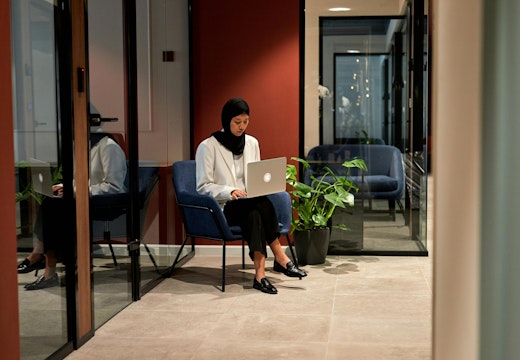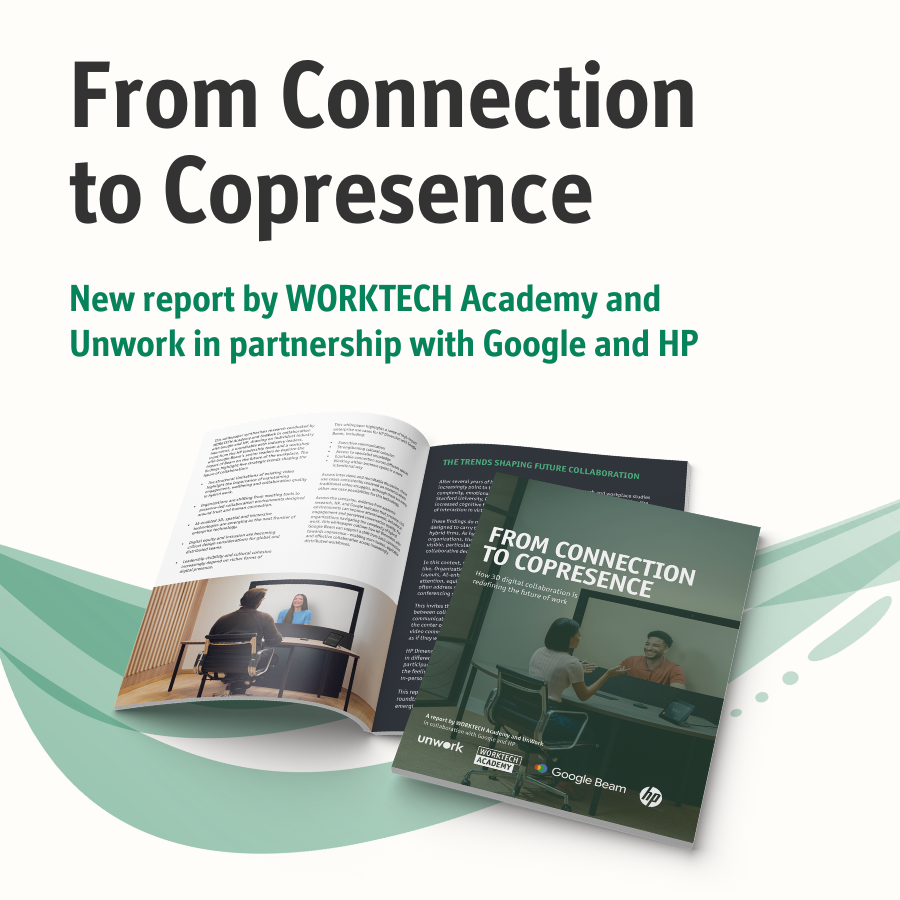Five ways AI-enabled experiences are ushering a new era of work
AI is everywhere, but especially at work. From automating repetitive tasks to offering smart nudges that guide decision-making, AI is fundamentally reshaping the digital workplace
There’s a lot to be excited about in the workplace industry. Technology is helping us save time, glean better insights from our environments and we are starting to see the beginning of personalized workplace experiences. But there’s also growing pressure on IT and business leaders to implement AI responsibly, and strategically. Especially as employees face new expectations to adopt AI tools, take AI training, and work alongside internally built AI agents.
And that’s the inflection point we’re in AI is no longer a feature. It’s becoming the connective fabric of the workplace.
Here are the top five ways AI is changing the workplace and what that means for your organisation.
AI as an experience driver
AI isn’t just a backend capability, it’s quickly becoming the frontline of the employee experience.
Employees interact with dozens of digital tools daily, but many of them are not eliminating friction in the workplace. Through task agents, knowledge assistants, and automated workflows, AI is now acting as a seamless layer across systems, surfacing information and executing tasks without requiring users to jump between apps. What this means:
What this means:
- Employees can ask a question and get answers instantly, no matter where the content lives.
- Tasks like booking a meeting room, filing a ticket, or locating HR policies can be completed through one AI-powered interface.
- Support roles shift, as AI becomes the first point of contact for many day-to-day needs.
According to Gartner’s ‘Emerging Tech: Top Use Cases for Generative AI’ report, by 2026, 20% of repetitive processes will be automated by domain-specific GenAI across every industry which will accelerate productivity and shift workforce expectations.
These changes aren’t theoretical, they’re already reshaping how companies operate. For a deeper dive into how AI is powering modern workplace ecosystems, explore Modo Lab’s ebook on AI in the workplace.
Personalised work
AI doesn’t just do tasks, it observes, learns, and adapts. With personalised nudges, smart suggestions, and predictive insights, employees now experience a workplace tailored to their unique role, preferences, and habits.
But this comes with trade-offs: greater personalisation also means greater data visibility. AI needs context to be useful and that means analysing behaviour in real time. This means that:
- AI can guide better habits (like time management or meeting prep).
- Managers gain visibility into trends across teams and tools.
- Organisations must be transparent about how AI monitors and uses behavioral data.
- Transparency empowers employees to make informed choices, like enabling location services to get real-time commute or in-office recommendations, or turning off features they don’t want.
Personalisation matters more than ever: 71% of consumers expect personalised interactions and 76% get frustrated when they don’t happen, according to research by McKinsey.
Workplace AI needs to strike a balance between smart support and respectful boundaries to earn trust and drive adoption, whether employees are at their desks, on their commute, or navigating an in-office day as part of their connected workplace experience journey.
AI in workplace apps
The average employee toggles between 9 to 15 apps a day, leading to frustration, context switching, and lost productivity. According to Gallup, 46% of employees are dissatisfied with their workplace applications, highlighting the need for more intuitive, streamlined experiences.
AI alone won’t eliminate all these tools, but when embedded into a workplace app that acts as the central experience layer, it can dramatically reduce the friction of navigating them. Instead of bouncing between platforms, employees can access information, complete tasks, and receive intelligent nudges – all in one unified interface. This means that:
- AI-powered federated search delivers answers, not just links.
- Users don’t need to remember where something lives, just what they need to do.
- Systems feel connected, seamless, and intuitive, not siloed or overwhelming.
 Workplace apps like Modo are evolving from static launchpads into intelligent, outcome-driven experience hubs. The platform integrates tools, surfaces context-aware insights, and helps employees stay focused on high-value work.
Workplace apps like Modo are evolving from static launchpads into intelligent, outcome-driven experience hubs. The platform integrates tools, surfaces context-aware insights, and helps employees stay focused on high-value work.
As AI automates repetitive tasks, the demand for human-AI collaboration is rising fast. From designing prompts to ensuring ethical deployment, AI is creating entirely new roles, and reshaping the expectations of existing ones.
According to IBM, 40% of the global workforce will need to reskill in the next three years due to AI and automation. And it’s already happening. Organisations are requiring employees to use AI tools, participate in training, and help test new models, whether they work in IT, HR, or on the front lines.
Meanwhile, AI-related roles are seeing massive growth, per Autodesk’s 2025 AI Jobs Report:
- AI Engineer (+143%)
- AI Content Creator (+134%)
- AI Solutions Architect (+109%)
- Prompt Engineer (+96%)
- AI Coach (+58%)
- AI Product Manager, Strategist, Compliance Specialist, and more
Notably, the surge includes non-technical roles like AI Art Designer and Trust and Safety Specialist – highlighting that AI integration isn’t just about algorithms. It’s about equipping employees with the hybrid skills needed to work alongside intelligent systems in their daily flow of work.
By embedding AI-powered tools, training prompts, and support directly into a centralised, personalised workplace app, organisations can make this transition smoother and more scalable. Employees don’t have to jump between systems, they can access intelligent assistance, guidance, and learning opportunities in the same place they manage tasks, access resources, and connect with their teams.
A context-aware workplace experience platform becomes more than a digital hub, it becomes a daily partner in helping people adapt, grow, and thrive alongside AI.
AI alone isn’t a strategy. It’s an enabler, one that becomes far more powerful when tied to your systems, your workflows, and your people. The future of work belongs to organisations that use AI to reduce friction, empower employees and balance innovation with privacy and purpose.
And that future? It’s not five years away. It’s already unfolding.








